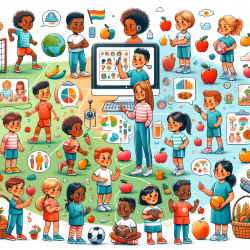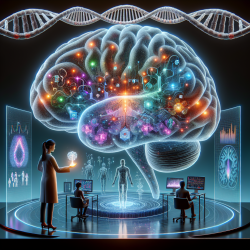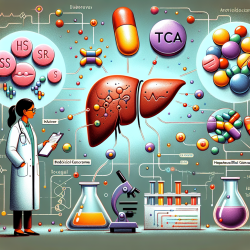In the ever-evolving field of healthcare, the integration of technology into clinical practice is crucial for improving patient outcomes. One area that holds significant promise is the use of Natural Language Processing (NLP) to analyze clinical narratives. A recent research article titled "Towards Comprehensive Syntactic and Semantic Annotations of the Clinical Narrative" sheds light on how practitioners can leverage these advancements to enhance their skills and improve patient care.
The Importance of Annotated Clinical Narratives
Clinical narratives are rich sources of information that capture the nuances of patient care. However, extracting meaningful insights from these narratives can be challenging due to their unstructured nature. This is where syntactic and semantic annotations come into play. By annotating clinical narratives with layers of syntactic and semantic labels, practitioners can facilitate advances in clinical NLP, making it easier to extract relevant information for decision-making.
Syntactic Annotations
Syntactic annotations involve the use of structures like Treebank and PropBank to provide a grammatical framework for clinical narratives. These annotations help in identifying sentence structures, predicate-argument relationships, and more. By understanding these elements, practitioners can gain a deeper understanding of the text's meaning, leading to more accurate interpretations.
Semantic Annotations
Semantic annotations focus on labeling entities within the text according to their meanings. The research utilizes the Unified Medical Language System (UMLS) schema to categorize entities into groups such as Procedures, Disorders, Anatomy, and more. This categorization helps practitioners quickly identify key medical concepts within a narrative, streamlining the process of information extraction.
Enhancing Practitioner Skills
The integration of syntactic and semantic annotations into clinical practice offers several benefits:
- Improved Decision-Making: With annotated narratives, practitioners can make more informed decisions by quickly accessing relevant information.
- Enhanced Communication: Clearer understanding of clinical narratives leads to better communication among healthcare teams.
- Efficacy in Research: Annotated data sets provide a rich resource for conducting further research and developing new NLP tools.
The research also highlights the need for a widely agreed-upon annotation schema within the clinical NLP community. Standardizing these schemas will facilitate collaboration and improve the accuracy of NLP tools across different healthcare settings.
The Path Forward
This foundational step towards integrating NLP into clinical practice opens up numerous opportunities for practitioners willing to embrace technology. By implementing the outcomes of this research, you can enhance your skills and contribute to advancing healthcare technology.
If you're interested in delving deeper into this topic or exploring opportunities for further research, consider reading the original research paper: Towards comprehensive syntactic and semantic annotations of the clinical narrative.










